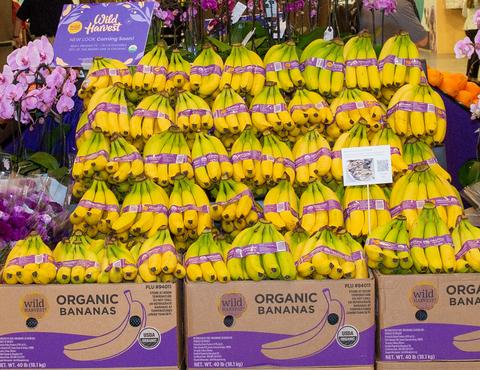Sales Up, Profitability Down at UNFI

Heeding the changing business climate, United Natural Foods, Inc. (UNFI) is adjusting its outlook for the rest of the fiscal year and going back to the drawing board for its fiscal ‘24 targets. The change in expectations comes after a second quarter performance that saw inflation-fueled sales gains tamped down by declines in profitability.
According to the wholesaler’s latest financial report, net sales in the second quarter ending Jan. 28 grew 5.4% on a year-over-year (YoY) basis to top $7.8 billion. The uptick was attributed to higher overall prices and new business.
[Read more: "EXCLUSIVE: 5 Food Trends From UNFI's Selling Show"]
At the same time, net income slid 71.2% on a YoY basis during the second quarter, mirrored by a 71.3% in earnings per diluted share. Gross profit decreased by $6 million, at a 0.6% pace, to nearly $1.1 billion. Adjusted EBITDA likewise declined, down 17.6% compared to the second quarter of 2022.
Based on recent performances and an admitted “miss” in assessing hyperinflation and the reasons behind it, UNFI is updating its forecast. The wholesaler is raising its sales outlook but lowering its profitability expectations for the back half of FY23.
UNFI’s net sales for the fiscal year ending July 29 are now projected between $30.1-$30.5 billion versus the previous estimate of $29.8-$30.4 billion, while net income is expected to range between $90-$142 million compared to the earlier projection of $247-$266 million. The adjusted EBITA outlook now is $715-785 million instead of the prior range of $850-880 million.
“While I’m pleased with our continued sales growth, profitability in the quarter was lower than recent levels and our plan. Profits were challenged as we did not repeat the significant level of procurement gains from rapidly accelerating inflation and inventory gains, due to supply chain volatility, that we experienced in the second quarter of last year,” summarized CEO Sandy Douglas.
While profits took a hit, UNFI is embarking on a transformation to steer the company through current and future challenges. “Our improvement efforts are already well underway. We’ve assembled a highly skilled and motivated management team that is developing a multifaceted transformation plan to continue to drive improvements in our customer and supplier experience and address legacy integration and capability gaps in our digital and physical infrastructure,” said Douglas. “We look forward to sharing our transformation agenda and how we expect it to generate sustained improvements to shareholder returns.”
The wholesale company is also continuing to focus on higher margin areas in its business, including private label sales. In January, UNFI announced an expansion of its Wild Harvest line of organic produce to include 40 new offerings. “Our private brand performance in the quarter was very strong and grew double digits,” reported Douglas during the Q2 financial results webcast. “We recently scaled up and put a talented leader on that business and are overhauling our strategy by sharpening our brand positions. There are a lot of collaborations going on with leading retailers.”
During the second quarter webcast, Douglas reported that its diverse roster of retail customers are also navigating a still-volatile marketplace to varying degrees. “We are seeing some of our natural customers doing very well and some of the more conventional retailers are doing well because of the diversity of their offerings. It varies across the board based on the capabilities of the customer,” he remarked.
Providence, R.I.-based UNFI delivers a wide variety of products to customer locations throughout North America, including natural product superstores, independent retailers, conventional supermarket chains, e-commerce retailers and foodservice customers. The largest publicly traded grocery distributor in America, the company is No. 49 on The PG 100, Progressive Grocer’s 2022 list of the top food and consumables retailers in North America.







